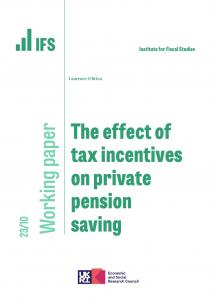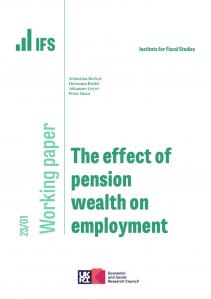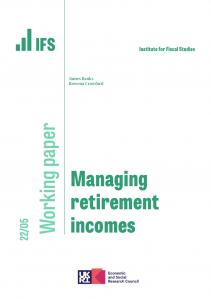Authors

CPP Co-Director
James is Senior Research Fellow and Professor of Economics at Manchester, working on broad issues in the economics of retirement, savings and health.

Head of Data Services
Zoe is Head of Data Services. She joined the IFS in 1998 as a researcher and moved into Data Services in 2011.

Research Associate Yale University
Cormac is a Research Associate of the IFS, an Assistant Professor of Economics at the Yale University and Research Fellow at the NBER.
Suggested citation
J, Banks and C, O'Dea and Z, Oldfield. (2010). 'Cognitive function, numeracy and retirement saving trajectories' (2010)
More from IFS
Understand this issue

Why saving for a pension has become more risky
5 June 2023

Why politicians need to think long-term about pensions
26 April 2023

We must act now to prevent a real pensions crisis developing in future
24 April 2023
Policy analysis

Early retirement increasingly concentrated amongst the wealthy
1 November 2023

What do pensions freedoms mean for financing retirement?

How important are defined contribution pensions for financing retirement?
30 June 2023
Academic research

The effect of tax incentives on private pension saving
24 February 2023

The effect of pension wealth on employment
3 January 2023

Managing retirement incomes
14 January 2022